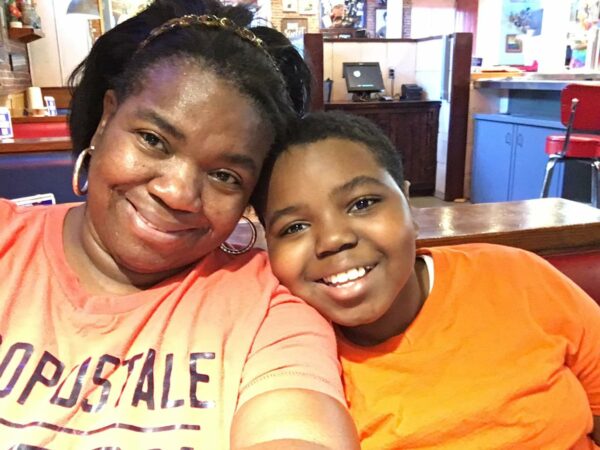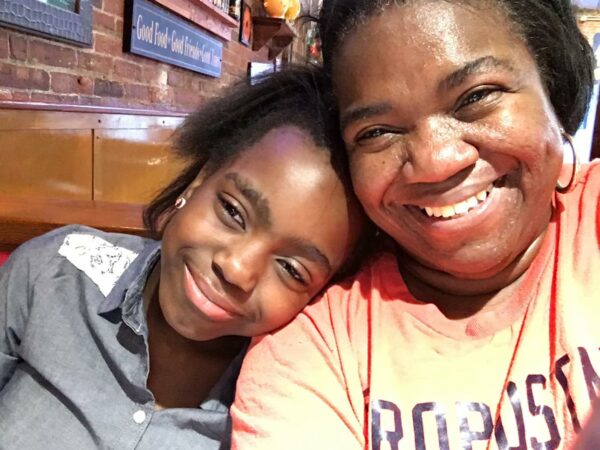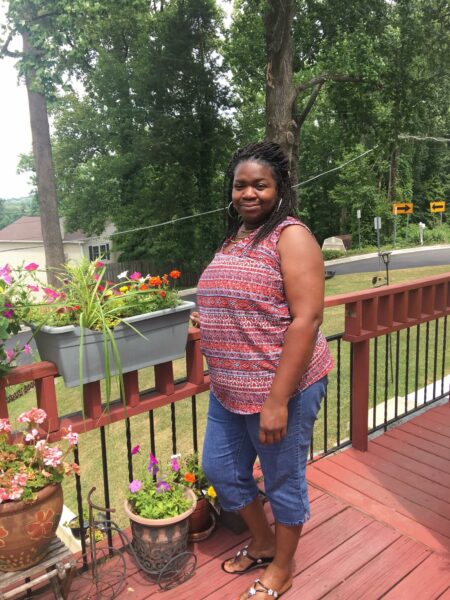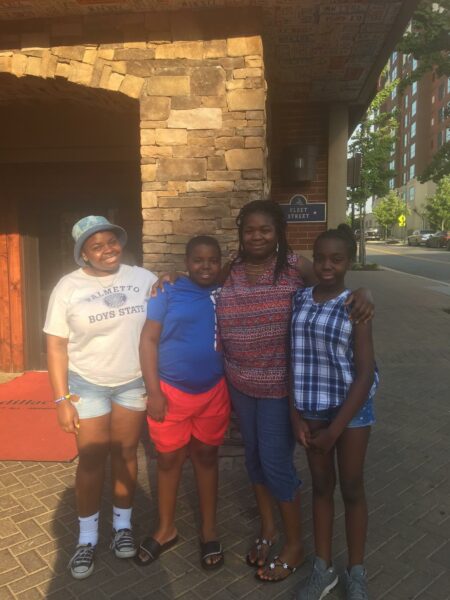Miranda Dunmore
"Miranda Dunmore is my mother. She has two master’s degrees and is a Special Needs Teacher. My mom is a great mother, and she makes sure that we all are provided with what we need. My mom is a very compassionate woman, she would give you the shirt off of her back if you need it." - Shatari Dunmore.
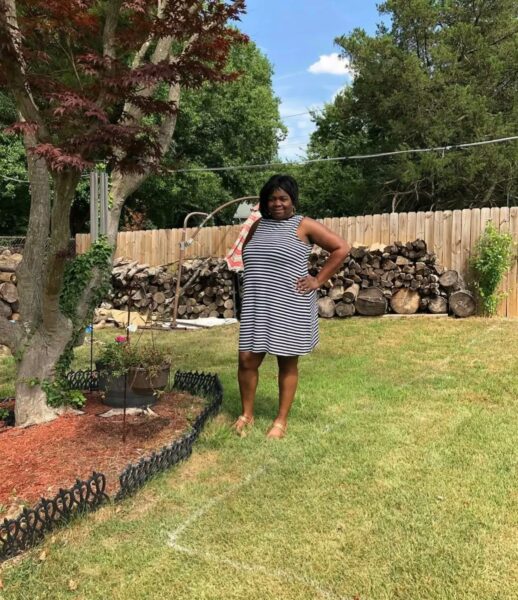
Shatari: Alright, so can you tell me about your insurance? Do you have Medicaid or?
Miranda: I don't have Medicaid, I have the State Health plan. But my children are enrolled in Medicaid.
Shatari: What does it mean for your children to have Medicaid? How has the program made a difference in your life?
Miranda: It has really been literally a lifesaver. Both of my children have had severe illnesses. My oldest son and only son was diagnosed with a chronic blood disorder and has had to have several visits to the hospital. So, he once was on a private health plan, it literally put me in bankruptcy. I was able to speak with some hospital staff who told me about the Medicaid program, and we were able to get him enrolled that way. But, I had so many bills, so many bills. I could not afford it.
Shatari: Okay so, how has Medicaid helped with your children's health care needs?
Miranda: It has really helped them get the care that they needed. Like I said, my son was born with, he was diagnosed with a chronic blood disorder.
Shatari: What's the name of the disorder?
Miranda: It's Sickle Cell disease. It's a very wicked disease. But he's a trooper, he was diagnosed with that blood disorder. My baby was diagnosed with VSD. It was Ventricular Septal Disorder, basically she had two holes in her heart, and she had to end up having open heart surgery at the age of nine months old. That was a very scary time, and then when she turned twelve, she ended up having to have scoliosis surgery. This was a very challenging surgery, it took about seven, eight hours. She was in intensive care for about 3 days. She was in the hospital in a regular room for about two days. She did fairly well after she got out of the ICU, she is very strong. But her back had to be infused with a metal rod. Very, very costly, very costly. The heart surgery she had to have when she was only nine months old, and then 12 years later to have to have surgery to fix scoliosis, which was a result of the heart disease, that was why scoliosis developed. I just thank God that my children were able to have this Medicaid because, I just don't know how I would've ever been able to pay these bills how I would ever been able to survive through anything. So, it's just really been a blessing.
Shatari: So, I know you touched on it a little bit earlier, but you were saying with your son he was on a private plan, so the private plan was the premiums high? Like what was the difference you felt, like the financial difference with Medicaid versus the [private] plan that you were paying for?
Miranda: There was a 5,000-dollar deductible on the private plan that he had at the time. So, we were constantly getting bills. 200–300-dollar bills, cause at this point, he was going to the doctor like twice a month and these bills were quickly, quickly adding up. And it would be lab work, then the hospital would have a bill, then the doctor would have a bill, it would be so many different people you know. Specialist, they would have a bill, and it was just too much. Could not afford it.
Shatari: So, how long did it take for you to enroll and for the Medicaid benefits to start, and can you do you mind going into detail when you learned did you put your eldest daughter on Medicaid first or did you put your son on and then add your other children? How did that work?
Miranda: My oldest daughter had a private plan initially. But then after I was able to get my son qualified, she was able to get qualified. Thank God she never had any medical situations, so she didn't really need the insurance, just for routine care. But my other children really needed it, they needed the medical care.
Shatari: So, what was the process like when you enrolled into Medicaid, the Medicaid Program?
Miranda: Someone from the hospital. I spoke to someone and told them about my son's situation and told them about all the bills that I was becoming flooded with, so it was a very easy process. She was very kind, very compassionate. She went ahead and did paperwork and before I knew it all my children were enrolled. So, it was an easy process, I don't remember any [challenges] there was nothing bad about enrolling.
"I am a working mother, doing the best that I can with my children, and I work full time. I do not receive any welfare but being able to have qualified for the Medicaid has really been a blessing."
Shatari: Okay, and in regard to your sons and daughters' experience with healthcare services in general do you feel like there was ever any challenges or they were treated differently by doctors or anything or any systematic race issues experienced by your children?
Miranda: Well, my son who has the chronic blood disorder, the Sickle Cell disease I remember when he was about seven months old in a Florence hospital. We had a Black doctor who, because Sickle Cell disease is considered to be a people of color disease. So, you would think that a person of color would understand it better than any other race, but this particular doctor seemed to have no compassion. I would be stuck in this room, nurses coming in around the clock listening to him [her son] screaming out in pain. And you know they would make notes and say: “okay we're going to let the doctor know.” And then one morning this doctor came in the room and said: “uh just you just cut this out I don't think that you're feeling pain like that, you're not having that kind of pain.” And it devastated me because, by here this was about day 3, I'm there at night with this child waking up in the night screaming crying. I'm there the entire time, and it's like ‘how dare you come in here and say he's not having pain.’ Why would a child just be laying up in a hospital bed, screaming and kicking all night long where he's not sleeping, irritable, it was crazy. So, I had to call the hematologist, a wonderful doctor, Dr. Carla D. Roberts. I mean one of the best hematologists, I'ma say in the world. But I called her office, and I broke down and I just told her I could not believe this doctor was telling me, my baby, laying here in this pain was not feeling what he felt. And within two hours, and at this point we were in Florence County, and she's in Richland County. Within about two hours, two new doctors walked in the room and said: “hi, we will be taking over your son's care.” And that was a blessing. It was just an absolute blessing, I just fell. I remember falling on the bed and I just burst into tears. Because it's like, it felt like wow. Somebody heard us. Somebody really cares.
Shatari: So, um I’ma spin back to me [laughs]. When I aged out of the Medicaid program, even though I didn't have any issues like your two youngest children, um how did that affect you knowing that I didn't have any insurance.
Miranda: It was hard because we would have to try to scrape money up you know to get her care. It was a big worry, it really was. It was a big worry.
Are you concerned about, your two youngest children, will they be able to continue to have Medicaid when they get older? Or are you unsure about if they will age out or?
Miranda: I'm actually unsure. I don't know, I don't know when they will age out of it. I'm not sure, but it's really been a blessing and it's really been a help, a great help for us it really has.
So, how do you think your life would be if you didn't have Medicaid?
Miranda: Oh, life would've been so much harder. Definitely would've been destitute. I mean especially having two children with two major conditions, an open-heart surgery at nine months old and then having to have a rod infused into her spine. And then a son with a chronic blood disorder, constantly in the hospital constantly having to have treatments. And it just would've had a terrible impact on me financially, so I am just so grateful, thankful to the Medicaid program.
So, my last question is if you could say anything to SC State leaders about expanding Medicaid what would you say?
Miranda: I would say: ‘I am a working mother, doing the best that I can with my children, and I work full time. I do not receive any welfare but being able to have qualified for the Medicaid has really been a blessing. It really has been especially when you know you have children who have major health conditions, so I would ask that you please expand Medicaid because there are people out here who really are working hard like me. You know I went back to school, obtained a teacher's certificate but I still am not making the salary that I hope to soon one day make. But I went back to school to better my life. But that Medicaid has, just really really has helped us so much and I am so thankful. And I do pray that others [get it] because there are people out here who are working hard, who are trying, who want better, and who need it.’
Meet Shatari's family and learn about their stories! 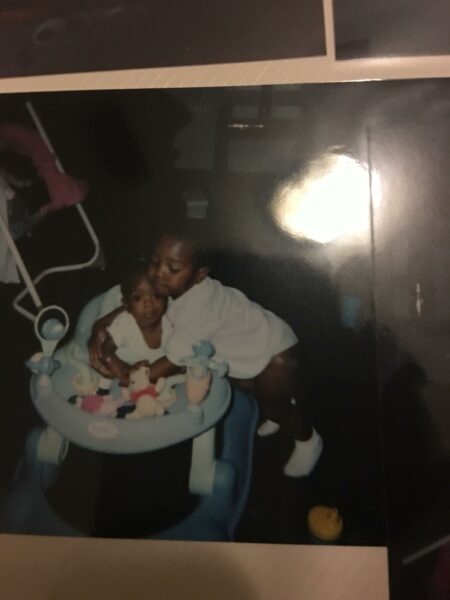
Meet Shemar, Shatari's Brother
Meet Shamya, Shatari's SisterTo find more South Carolinian stories, visit our Story Page here to learn more.

